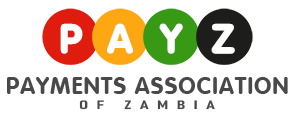Source: UNCDF
Part 2. Challenges and Opportunities of the Digital Economy
The rise of the digital economy has raised unique consumer protection issues and opportunities. The availability of e-commerce and other digital transactions offers consumers a wider range of choices in potentially global markets. With more choices at their fingertips, in theory consumers can more easily and efficiently compare prices and terms, enhancing their bargaining power. While these factors may alleviate some traditional concerns of consumer protection, they exacerbate others and raise new ones.
For example, in online purchases, consumers may have limited knowledge about the provider, including where it is located, its reputation for quality or fairness, its responsiveness to complaints or even whether it is who it purports to be. They may not have an opportunity to inspect products to ensure they are safe, effective and high-quality. This can create significant information asymmetries between the providers and the consumers making online purchases.
Moreover, the nature of digital payments and collection of personal data also raises new issues about data security, the potential for fraud and violations of privacy. Recent research shows that 17% of online shoppers who abandon their online cart prior to completing their purchase cited a lack of trust in providing payment information to the provider. Providers can attempt to mitigate this distrust by assuring consumers through the use of measures such as recognized security certifications or trust badges and partnerships with reputable online payment system providers. However, these measures may require significant investments that some smaller providers cannot afford.
How consumer protection supports the digital economy
In order for a digital economy to flourish, consumers need to have trust in the integrity and fairness of digital markets. Effective consumer protection laws and procedures can engender such trust, giving consumers the confidence to engage and transact. These aim to address the asymmetries, consumer irrationalities and other barriers to optimal consumer choice. They typically involve the application of rules, principles and procedures to impose obligations of fairness, accountability and transparency (sometimes referred to as FAT) on providers and grant consumers certain rights consistent with these values. While approaches vary across jurisdictions, a cluster of six core principles particularly applicable to the digital economy can be distilled.
Fair practices
Consumers may be vulnerable to deception where online transactions do not allow the opportunity to properly evaluate goods, services or the provider before making the purchase. For example, a consumer purchasing clothing online will not be able to verify the quality of the fabric or the fit or assess whether the branding is authentic. Online product reviews by other consumers are a potential means of increasing pre-purchase transparency. A 2016 study showed that 82% of adults read such reviews before making an online purchase. However, such reviews may not be reliable and fraudulent reviews are becoming increasingly prevalent, for example with businesses artificially increasing their ratings or artificially lowering competitors’ ratings through fake reviews.
Consumer protection frameworks typically require providers to adopt fair business practices through the entire lifecycle of consumer transactions, from promotional and advertising materials through the terms and conditions attached to a purchase. This includes prohibiting any deceptive, fraudulent or unfair representations and ensuring that products are genuine, the quality is accurately depicted, pricing is clear and not presented in a misleading manner, any online reviews or endorsements are authentic, and the provider accurately discloses its identity and qualifications.






